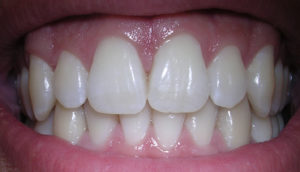 A large study by researchers at the State University of NY, of 65,869 postmenopausal women found that those who have a history of gum or periodontal disease also have an overall higher risk of cancer. The women with a history of periodontal disease also had an increased risk for several specific cancers: breast, esophageal, gallbladder, lung and melanoma cancers. This cancer and gum disease association occurred in both nonsmokers and smokers.
A large study by researchers at the State University of NY, of 65,869 postmenopausal women found that those who have a history of gum or periodontal disease also have an overall higher risk of cancer. The women with a history of periodontal disease also had an increased risk for several specific cancers: breast, esophageal, gallbladder, lung and melanoma cancers. This cancer and gum disease association occurred in both nonsmokers and smokers.
How is periodontal disease "promoting" cancer? How it occurs is still unclear, but one theory suggests the gum disease bacteria are in the saliva, which is swallowed, and so the bacteria get into the gut, esophagus, or lungs. Or bacteria from diseased gum tissues get into "systemic circulation" and so get to distant sites in the body. One of the researchers pointed out that "Certain periodontal bacteria have been shown to promote inflammation even in tiny amounts, and these bacteria have been isolated from many organ systems and some cancers including esophageal cancers."
From Medscape: Gum Disease and Increased Link to Many Cancers
Brushing, flossing, and regular dental checkups appear to do much more than maintain a healthy smile. Now, a large prospective cohort study shows that postmenopausal women with a history of periodontal disease, including those who have never smoked, are at significantly increased overall risk for cancer as well as site-specific cancers, including lung, breast, esophageal, gallbladder, and melanoma skin cancers.
The study authors note that these results add to the growing body of evidence from smaller studies and studies in men that link periodontal disease to total cancer risk. The Centers for Disease Control and Prevention (CDC) estimate that 47% of adults 30 years of age and older in the United States have some form of periodontal disease, ranging from mild to severe. At age 65 years and older, however, 70% of adults have moderate to severe periodontal disease, according to the CDC.
The study involved almost 66,000 postmenopausal women in the United States, who were enrolled in the ongoing Women's Health Initiative Observational Study (WHI-OS). During a mean follow-up of 8.32 years, the team identified 7149 cancers and found that periodontal disease history was associated with a 14% increased total cancer risk. When analyses were limited to 34,097 never-smokers, there was also an increased risk for overall cancer.
An association between periodontal disease and site-specific cancers was observed in breast, lung, esophageal, gallbladder, and melanoma skin cancers. There was a borderline association with stomach cancer, the study authors report, and periodontal disease was not associated with cancers of the pancreas; liver; lower digestive tract organs; or lip, oral cavity, and pharynx combined. Similarly, there was no association with genitourinary and lymphoid and hematopoietic malignancies.
For the study, the investigators looked at periodontal disease information in 65,869 women aged 54 to 86 years at 40 US centers. Mean age was 68 years. Most women were non-Hispanic whites with some college education. All participants answered the question "Has a dentist or dental hygienist ever told you that you had periodontal or gum disease? (No/Yes)" between 1999 and 2003 on the annual Year-5 WHI-OS follow-up questionnaire. Cancer outcomes were documented through September 2013 with a maximum 15-year follow-up period.
